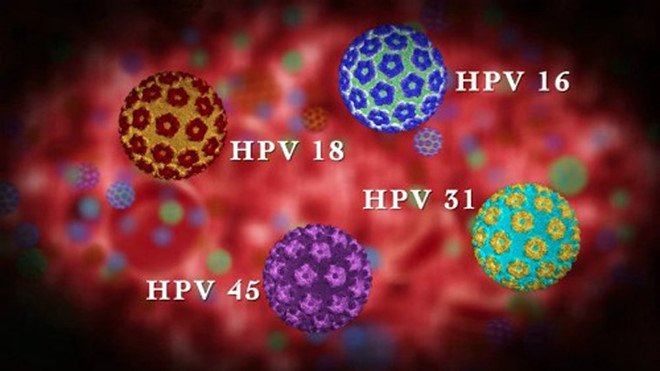What is a vulvectomy and how is it done?
Vulvectomy is one of the main treatments for vulvar cancer. The surgical approach needs to balance the need to remove all cancer cells with the patient's sex life.
1. What is vulvectomy?
Vulvectomy is the removal of part or all of the vulva. The vulva is the outer part of a woman's genitals. Indications for vulvectomy can be applied in the treatment of vulvar cancer. The purpose of surgery is to remove cancerous tissue or unhealthy cells in the vulva area. Types of vulvectomy include:
Removal of the top layer of vulvar skin, leaving most of the structure and other tissues intact. Simple vulvectomy: Removal of the entire vulva. In some cases, the clitoris may be removed. Radical vulvectomy: Removal of the entire vulva, as well as surrounding tissues and lymph nodes. Radical vulvectomy (revision): Removal of the vulva and some lymph nodes and surrounding tissue. The type of vulvectomy will depend on the severity of the disease or the patient's medical condition. Nowadays, the importance of quality of life and sexual needs are increasingly concerned. Therefore, when vulvar cancer is detected early, there is no need to remove too much of the surrounding healthy tissue. In some cases, radiation therapy can be combined with chemotherapy and surgery to kill more cancer cells in advanced cancers. Some patients after vulvectomy may require a skin graft. Skin grafting is taking a piece of skin from a part of the body to graft into a wound. For women who have had extensive vulvectomy, reconstructive surgery is an appropriate option.
2. How is a vulvectomy performed?
Before surgery
Before surgery, the patient should inform the doctor if there are the following problems:
Using stimulant drugs; Have sleep apnea ; Use herbs or natural supplements; Using a pacemaker; Allergies or reactions to medications, including anesthesia; Using over-the-counter or prescription drugs; Use anticoagulants. During surgery:
The surgeon makes one or more incisions in the vulva before removing the tumor and surrounding tissue. Depending on the severity of the cancer, your doctor may also remove some or all of the lymph nodes in your groin. Vaginal reconstruction can be performed immediately after vulva resection. After surgery:
After surgery, the doctor may place a drain to remove fluid that has accumulated in the surgical area. These drains are temporary and will be removed as the wound heals. The patient will be given instructions on how to take care of the "little girl" and the nurse can assist the patient if needed. Patients may need to stay in the hospital for several days for observation before being discharged.
3. What are the risks of vulvectomy?
Like other types of procedures, vulvar ablation also carries a number of risks including:
Bleeding, infection, blood clot formation; Wound problems such as delayed healing, infection and/or failure of the skin graft site, formation of fluid-filled cysts; Urinary tract infections ; Lymphedema in the legs; Changes in the shape of the vulva, decreased libido; Genital numbness (may be temporary); Vaginal narrowing, decreased sexual pleasure and/or pain during intercourse; Discomfort and fatigue; Change in urine flow.
4. Notes after vulvectomy
During the recovery process at home, the patient should note the following:
Use a clean, soft towel to dry around the surgical area; Sanitize the bathroom and the items in the bathroom clean; Wear loose clothes, so choose comfortable cotton underwear; Be sure to take the medication prescribed by your doctor to prevent pain, infection, and/or constipation. Contact your doctor when experiencing any unusual symptoms; Post-vaginectomy patients may experience constipation. There are many ways to manage constipation after surgery, such as changing your diet, drinking plenty of fluids, and taking over-the-counter medications. You should consult your doctor before taking any medication for constipation; Deep breathing and rest can help manage pain, keep your lungs healthy, and promote better lymphatic drainage. Try to do deep breathing and relaxation exercises a few times per day for the first week. While sitting, close your eyes and take 5-10 deep breaths, slowly relaxing your muscles; In general, it can take several weeks to fully recover from a vulvectomy. When noticing unusual symptoms such as pain, discharge from the incision, high fever, foul-smelling fluid, etc., the patient should visit a medical facility.
Để đặt lịch khám tại viện, Quý khách vui lòng bấm số HOTLINE hoặc đặt lịch trực tiếp TẠI ĐÂY. Tải và đặt lịch khám tự động trên ứng dụng MyVinmec để quản lý, theo dõi lịch và đặt hẹn mọi lúc mọi nơi ngay trên ứng dụng.
Reference source: Oncolink.org
Bài viết này được viết cho người đọc tại Sài Gòn, Hà Nội, Hồ Chí Minh, Phú Quốc, Nha Trang, Hạ Long, Hải Phòng, Đà Nẵng.






